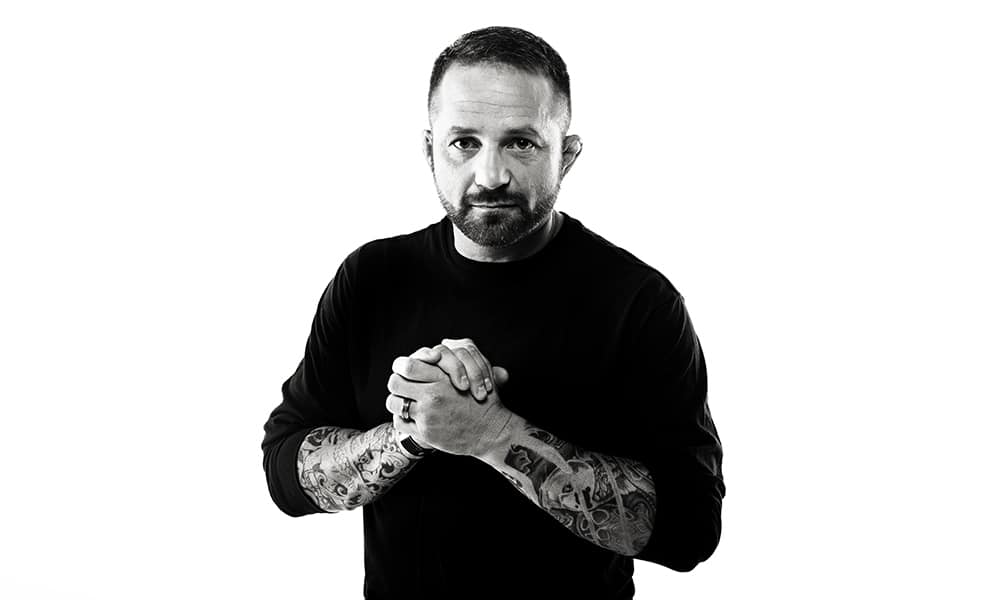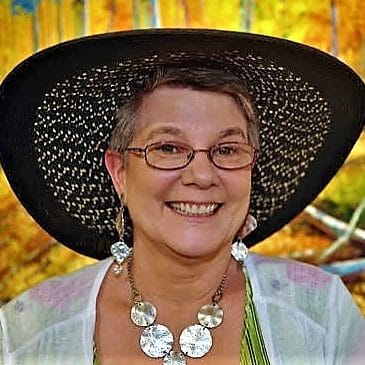Image: Chad Robichaux | The Mighty Oaks Foundation
PTSD inducing trauma is not exclusively tied to any one job description, military conflict or particular event. Post Traumatic Stress Disorder or PTSD, is real and carries serious mental health repercussions, affecting first responders, military personnel or anyone who has endured something horrendous- whether the event is long or short. The mind and the body deal with stimuli in different ways- often leaving the sufferer feeling hopeless and helpless- not really believing they can ever feel normal again. The road home from trauma can be a long one and, for many, feels circular.
Chad Robichaux, Executive Director of The Mighty Oaks Foundation knows exactly what that feels like- and just how bad the anxiety, the sleeplessness and the panoply of health issues can be. A Marine Corps veteran with eight tours in Afghanistan to his credit, Robichaux and PTSD are very old friends. He argues, “I just don’t believe this is a disorder. Your body is responding exactly as it should in response to things we are never intended to see, experience or participate in. The body has a natural response to protect ourselves- to protect ourselves from experiencing trauma that same way again.”
Robichaux has become the standard bearer, telling veterans and responders there is a way out of the chaos of PTSD which steals their health, destroys marriages and craters dreams. Once he found the way home, “It became a life mission for me.” The mission has taken Robichaux to the White House, made him a familiar face on various news programs, as well as The Mighty Oaks Show YouTube programs. His story is riveting. “I had spent many years being treated, I believe, incorrectly- with medications and clinical care- for a soul wound.”
Robichaux, the son of a Marine infantryman in Vietnam had, by his own admission, a rough childhood. Robichaux and his wife Kathy, married young, and he carried on the family tradition and joined the Marines. Once the wars in the Mid-East began, Chad served in a Force Recon Marine Unit- the Special Ops arm of the Corps. He was assigned to a Joint Special Ops Task Force with Navy Seals. The eyes and ears of this unit, Robichaux wore Afghan clothing, living and working with Afghan nationals gathering battlefield intelligence. He admits this was an extremely stressful, dangerous, tense environment-the sort that wounds a man’s soul.
Home from deployments, the tension never went on vacation and he grew increasingly frustrated and angry. “When I was home I would throw temper tantrums,” he admitted bluntly in a recent BTA interview. “It was not a happy place for our family.” Chad’s shares raw memories. Once, at young daughter’s birthday party she commented that she didn’t like the frosting on her cake, “I just flipped out,” Chad remembered ruefully. “I grabbed a handful of her cake and threw it up against the wall.” This pivotal incident is embedded in his memory. “What kind of dad does that?” he began to ask.
Returning to the field, Robichaux’s awareness of a bigger enemy led to isolation rather than addressing the problem. Isolation and anger metastasized into extreme anxiety attacks, experiencing even numbness and throat swelling. During times of extreme stress, he described an almost out-of-body experience, “I felt I was looking on at the situation I was in.” Psychologists call this disassociation. “Soon I was forgetting blocks of hours and days. When I finally snapped out of it, I realized I wasn’t just putting myself at risk, I was putting others in danger. I finally spoke up and said something.” Robichaux was sent home and soon received a PTSD diagnosis.
A self-proclaimed mess, the tough Marine stated, “I was ashamed. I felt I failed in my mission and let down my teammates.” His symptoms didn’t level out away from the fray of battle. “I thought I was going to die at any moment,” he said of his severe anxiety. The prescribed medicine made him feel vulnerable and exposed.
Instead, he threw himself back-full bore- into martial arts as a coping mechanism. From the age of five Robichaux had cultivated a passion for martial arts. Already participating in Mixed Martial Arts (MMA) non-professionally, Robichaux was good at it. Going pro with the Brazilian Ju-jitsu seemed the answer to his, “I can fix this” therapy. Chad and Kathy leveraged success in the ring into a large Ju-Jitsu school with 1000 students. Robichaux was winning professionally, landing big fights and titles. Money was flowing. “Tons of people were telling me what I wanted to hear- but, I had pushed away anyone who would tell me what I needed to hear. I had no accountability.”
Personally life was unraveling. Still in his early 30’s, the exertion of full time MMA training couldn’t ameliorate the PTSD symptoms. “I was still having high levels of anxiety and I couldn’t sleep.” Brutally honest, Robichaux shared, “My family was a mess and my marriage was falling apart. I was in a very lonely place.”
New found fame and adoration brought a whole new set of troubles. “I became involved in inappropriate relationships that eventually led to an affair.” Divorce followed.
“Kathy started going to church-really going to church- to be around the right people.” He relayed that his wife began to pray earnestly that the Lord would help her see her husband the way Jesus sees him; and love Chad the way that Jesus loves Chad. And, to forgive him the same way Jesus does.” There was a hitch in the tough guy’s voice as he shared this part of their story. It was a very near thing on a variety of fronts.

Chad Robichaux
Chad was not in church. He was in the ring. His biggest fight to date was Strike Force featured on HBO at the Toyota Center in Houston. “It was a war of a fight,” he remembered. “It was my Rocky Balboa moment.” The relentless duel ultimately came down to a decision.
Battered but victorious, “I won.” He added, “Thousands of people were screaming my name.” The accolades rang hollow because, for the first time in his career, Kathy wasn’t there cheering him on. “It all came home to me then.” He added, “I couldn’t blame anyone for anything in my life- but me. I was the common denominator.”
Nor could professional victory stave off the suicidal thoughts which dogged the bantam weight fighter. “People will be sad… but they will be better off.”
“That’s the lie,” Robichaux notes authoritatively, “that everyone contemplating suicide tells themselves.” At the time he was selling it to himself. Alone in the closet of his fancy new apartment he studied photographs of his family, a Glock .22 clutched in his hand. Pressing it first at his temple, and then his mouth, he paused to wonder, “Who will find me?” Only his son Hunter had a key to his apartment; And, Chad didn’t want his son to find his messy remains. “That thought would always pop the brakes for me.”
One night after a divisive telephone conversation, Kathy came to his apartment. She didn’t know it, but Chad was sequestered in the closet- working up the nerve to kill himself when she began banging on the door. Robichaux remembers Kathy was mad. “She asked me ‘How could every aspect of your life be so disciplined, and dedicated to exhaustive training- but, when it comes to our family- you just quit?”
Her question changed his life. “She was right,” he said simply. Chad asked if there was anyone at her church who might be able to help him. “I had tried everything else…I was ready to try this.”
Soon Robichaux met with Steve from Kathy’s church. “I had brought a military style ‘ops plan’ of how I thought I could save my marriage.” Remembering the scene, the former marine laughed. “Steve just tapped the papers and said, ‘If this doesn’t have anything to do with your relationship with God then it isn’t going to work.’” Robichaux admits he wasn’t sure what he was getting in to that day, but he accepted Jesus as his Savior- then allowed Steve to mentor him for a year on what Robichaux calls, Biblical Manhood. “Steve taught me I didn’t have to allow my past to define my future. I could choose a different future.” This profound moment soon changed the course of Chad and Kathy Robichaux’s entire life.
“Mark Twain,” Chad cited, “said the two most important days in a person’s life are the day he is born, and the day he finds out why!” Robichaux had found not only the fix to his problems but he had found his WHY. “I felt this obligation – like I had the cure for cancer- I had to share it.”
Only a year into their own restoration, Chad remembers, “We were not ready to start this organization,” referencing The Mighty Oaks Foundation (MOF) which mentors veterans, first responders and spouses dealing with suicidal thoughts and PTSD. “God did the rest.” Almost a decade later, The MOF, with growing influence is spreading some really good news. Robichaux has found the formula and often repeats the first step of the recipe, “You can’t fix a Soul Wound with pills or counseling- Soul Wounds have to have a Spiritual response.”

www.mightyoaksprograms.org
“I never would have believed the military would allow a faith-based program to be used on bases,” he says with a grin. But they have. It speaks to the military’s desperation to turn the epidemic around and help these men that are coming home with PTSD. It is a sad national embarrassment that every single hour a military veteran commits suicide.
Invited to come and help, The Mighty Oaks Foundation has spoken to an estimated 110,000 active duty military personnel a year, speaking at 20 to 30 military bases leading “Resiliency Programs” for those heading into combat areas. Today he speaks quarterly to crowds of thousands. They pass out free books on Resiliency to outgoing, combat-bound men and women, to arm them with foundational tools to deal with the stress. “This is the area where I’d like to see the biggest growth.” His training efforts are not limited to the United States, Robichaux has taken his training to military bases in the Ukraine, and Peru, thus far. “People just need a program. We have one that works.”
Mighty Oak’s Recovery “Legacy” Program for Veterans, operates 30 weeklong camps a year, at four different ranches. So far, they have had 2,750 graduates. All MOF programs are free, even the travel needed to get those vets, first responders or spouses to attend these life changing events. Participants are paired with team leaders in small groups. Pretty quickly the vets determine, “These people have been where I’ve been and they have seen what I’ve seen.” Robichaux says in addition to the 14 classes available at the Legacy Ranches, there is a key. “Everyone has to take and accept responsibility – not for the act or acts of trauma that brought them to this place- but for the response they will take from this point on. It can be hard and they must choose for themselves.”
The classes deal with character, discipline, time management and wise living based on Biblical principles which many of the Legacy attendees might never have heard of before. Part of aftercare for those who have come through a Mighty Oaks program is planting them in a good church and have them form a relationship there with someone. Aftercare lasts as long as it’s needed and small group “outpost” partners with them to keep the progress moving.
“It works.” Robichaux notes that VA hospitals, private organizations and hospitals and non-profits are commonly reliant on pharmaceuticals and counseling. “A lot of groups have really good intentions, but they didn’t work for me.” Veteran Administration Statistics tell the tale, every day some 21 veterans are committing suicide. Whatever they are doing is not working well enough.
The Mighty Oaks Show hosts regular YouTube programs. Chad Robichaux’s latest book, An Unfair Advantage is available on his website mightyoaksprograms.org, in print or audio book as well bookstores and Amazon, and he announced is currently “and terrifyingly” being made into a motion picture.
His authenticity was born in anxiety and Robichaux’s passion to help others with PTSD is evident. First coming to President Trump’s notice during the 2016 campaign at a Town Hall meeting; Robichaux has since testified twice before congress regarding PTSD and suicide among vets. He was appointed to the coalition on Mental Health and VA issues. A few months ago he received a letter from President Trump thanking him for his service and efforts to help Veterans.
“What led me to that closet with a gun in my mouth wasn’t any of those things I experienced in the field, in my childhood or the death of my brother…What led me there was my response to all of those bad things.”
Shared with anyone who will listen, his message is encouraging: There is a real path to restoration. Robichaux agrees the MOF program is really a manifestation of basic Christianity. “Many people we serve would never walk through the doors of a church. We just take it to them.”
His Christ-centered testimony tosses a life line to many flailing and dying in a chaotic, depressing PTSD journey. It is a message of hope, born out with actual results. “This fixed the brokenness in me and my marriage and my family.”



Oh my gosh, I need my son to read this!
I am in the midst of doing research and writing a book I pray God will open doors for : The Jesus rehab playbook. I am using the original book for alcohol anonymous, the big book, and their other book, the 12 traditions I am also doing research with drug rehab centers to learn their formulas.
I am in total agreement with what your incredible organization has done for traumatized military warriors. It is my intention to offer an alternative choice for newbie drunks not attend AA meetings, and for drug abuse rehab people that will only focus on biblical truth and have a Personal relationship withJesus that will fill everyone soul because of sin. I covet your prayers. If you would be open to communicating with me, I would like it very much!
Great testimony! I am a civilian who lost my 20 year old traumatically, and overnight it seemed! I too experienced PTSD AND Zoloft made me more like a comatose clown than anything! Through tears and constant forgiveness, of self and others; I am strong enough to use my pain to bring peace to those who live through the Hell on earth that I did for a good 20 years! GODSPEED AND MAY HE BLESS MOF TO REACH MANY MORE THOUSANDS THROUGHPUT THE WORLD! So many broken souls running around in despair searching for answers!